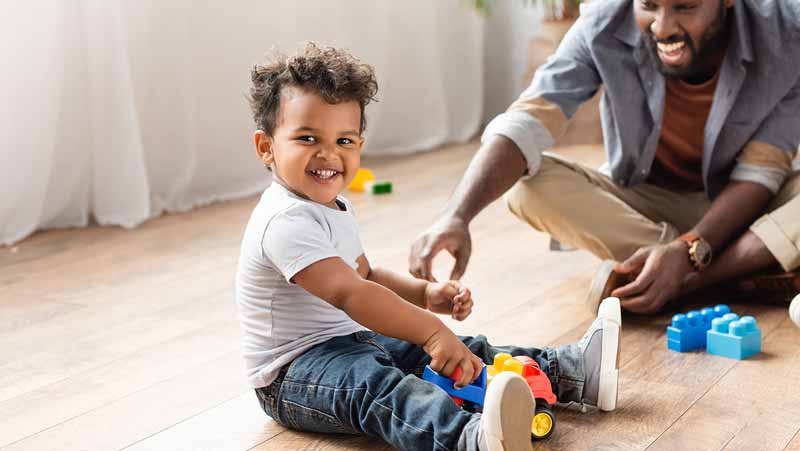At Right Start Inc, we know and understand that toys can help children with their motor and sensory skill development.
Is child development better with or without toys?
Playtime is very much a necessity for all children, as it improves appropriate child development.
Playtime also teaches kids many things that books cannot. Interacting with toys and getting creative during playtime can enhance and develop social and cognitive development in very naturalistic ways. Although there are developmental components that can be taught using other means, toys really do enhance and facilitate even more effective learning.
It is important to take into consideration that each child is truly unique. Some may begin their intellectual growth earlier than others and some may be late bloomers.
We find that a given toy may not be helpful for one child, while the same toy may be incredibly significant and contribute tremendously to anchor child’s early childhood development.
What are the benefits of Educational Toys
- Innovative and critical thinking: When playing with educational toys, children can develop perception, intuition, and reasoning.
- Cognitive skills: Educational toys can help children connect to their thought processes and further develop their capabilities to think freely.
- Fine motor skills: Educational toys can help children develop their fine motor skills like using their hands and wrists to accomplish small tasks.
- Soft skills: Through educational toys, children develop soft skills such as appropriate social interaction. This includes social values, language skills, and emotional development.
While electronic and sensory toys may provide some temporary stimulation and entertainment value, they’re not a substitute for more traditional toys that promote cognitive development in their simplicity.
Here are some great toys for development in babies and young children:
1. Building blocks
Building blocks are stereotypically traditional as a toy. They are also the perfect example of a toy that grows with your child. They are compact, feel nice to hold and handle, and can be used for fine motor skill development.
2. Art supplies
From crayons and markers to stickers and coloring books, introducing art to children can offer a wide array of benefits.
3. Clay and Play-Doh
In addition to drawing and coloring artistry, clay (and more specifically Play-Doh) can fulfill the desire for childrens’ creativity.
4. Jigsaw puzzles
Jigsaws and similar puzzles develop a child’s problem solving and spatial awareness skills.
Introducing young children to progressively more difficult puzzles as they grow older is a superb way to build their brain power early in life.
5. Push and pull toys
Cognitive development is important, however physical development is equally important too.
6. Pretend play
Toys that resemble real objects have always been a staple item for the toybox.
Themed pretend play sets introduce children to occupational possibilities and can inspire them to what they want to be as adults.
7. Balls
Balls have always been a deceptively simple toy, but one that is invaluable to a child’s early mentl and physical growth. The simple act of kicking a ball helps to build strength, stamina, and balance.
8.Plush and soft toys
When your children are introduced to television, they’re bound to latch onto some TV shows as favorites.
Whether it’s Peppa Pig or Sesame Street, you can guarantee there will be plush and soft toys available for the series. Character-based plush toys are a great way to bring a child’s favorite characters into real life.
9.Play mats
Play mats can be implemented into fun activities with a little imagination and theme play. Mats can quickly become one of the most interactive and useful toys in your child’s repertoire.
Examples of popular play mats variations include a cityscape with roads – perfect for play vehicles, helicopters and so on.
IN GENERAL…
At Right Start Inc, we believe that there are pros and cons to play with toys, but in general, choosing the right toys and using them in combination with other learning activities is necessary for your child’s overall learning development.
Play without toys can be effective depending on the learners’ preferences, but it can also be more time-consuming.
There will be a lot of trial and error, but it’s worth it– when the process of learning is fun, children will remember it more and ask to do it more often!

